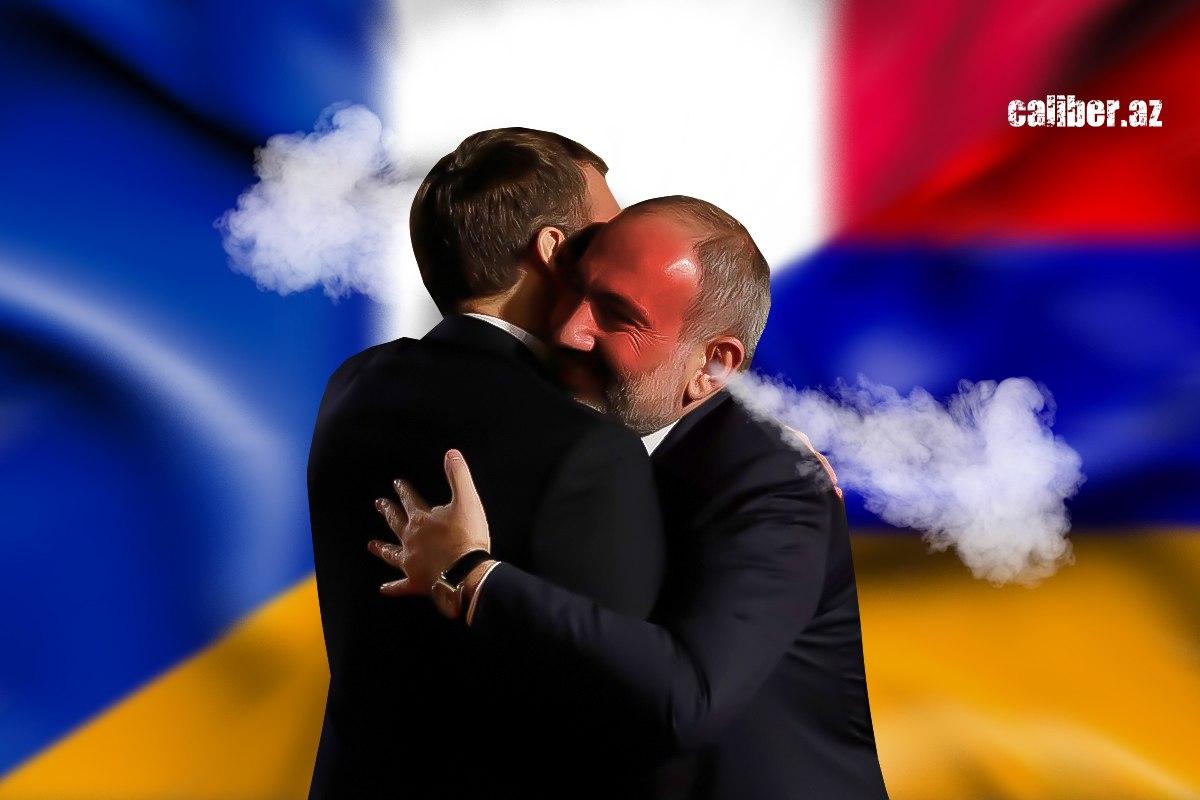Paris' conundrum: Pashinyan over Karabakh clan Assessing France's position on Baku-Yerevan talks
Interesting news has arrived from the Old World. The French Foreign Ministry issued a statement saying, among other things, that Paris was in favour of continuing negotiations between Yerevan and Baku to sign a peace treaty.
Unexpected constructiveness. It is no secret that France is at the forefront of the forces preventing the establishment of long-term peace between Azerbaijan and Armenia and stability in the South Caucasus. What was the reason for such readiness to support the peace process, from which, it should be recalled, the French were politely asked to withdraw?
It seems most logical that against the background of growing protests in Yerevan, such a statement sounds like support for the Pashinyan government. It is known that for the first time in a long time, the opposition has managed to gather quite large masses of people, allowing them to switch to parallel methods of struggle - the protesters are blocking the streets of the capital in order to create public paralysis - exactly following the mould of Pashinyan's own team, which used such methods to dismiss the Karabakh clan.
Two factors played a key role in this tactical luck. The first was the occasion. With the news of the return of four occupied villages of the Gazakh region to Azerbaijan, an irritating signal appeared in the flickering revanchist section of the Armenian consciousness - "Pashinyan is once again surrendering territories". The second factor was the decision that the protests would be led directly by the Armenian Church. Against the background of Yerevan Armenians' contemptuous attitude towards the Karabakh clan, the bet was placed on a traditional institution that still has authority in society. And it fired a shot. The situation is serious enough, and much now depends on Pashinyan's skills.
In this story, the West found itself in a hectic situation. It must be said that the delimitation process has caused concern among Armenia's Western patrons. On the one hand, they are against peace with Azerbaijan and would gladly slow down this process. However, the problem is that along with this, they also pursue another goal - to keep Pashinyan in power. Until recently, Pashinyan met both of these requirements, constantly delaying the peace process, sometimes simply bringing it to a dead end. However, over time, Pashinyan realised that it was possible to play a more complex game - acting on the contradictions between the West and Russia, receiving Western aid on the one hand and profiting from Russia's assistance in circumventing Western sanctions on the other. In any case, one can observe attempts to play this game. The West is not very happy with this, but it cannot do anything about it, as going against Pashinyan means playing into Moscow's hands. After all, the Karabakh clan, which is behind any more or less serious protests in the country and holds a third of the votes in parliament, especially its leader Robert Kocharian, is linked to Moscow. Therefore, Western officials, some of them heartily, supported the beginning of the delimitation and demarcation process and the negotiation process in general without mediators. Germany decided to make the most of this situation by providing a platform for talks between the foreign ministers of the two countries in Berlin in April this year. France kept silent for the longest time, obviously not happy about the process, from which it was thrown out because of its unequivocally pro-Armenian position.

At the height of the protests in Yerevan, Paris could not stand it either. They obviously realised in time that the radical pro-Western opposition, including the “National Democratic Pole” (which opposed the delimitation process - apparently at the orders of the French curators), would not soon begin to enjoy popularity in Armenia. It is curious that Moscow is in almost a win-win situation. If the Karabakh clan comes to power, everything will be fine for it.
However, even if Pashinyan remains in power, it would not be catastrophic either. After all, Pashinyan's attempts to increase his country's subjectivity paradoxically suit certain Kremlin towers, as they mean a certain equidistance from all centres of power, and thus a lack of hostility towards Russia. The emergence of a charismatic and intelligent pro-Western politician would be a nightmare for Moscow, and Moscow would certainly be ready to help Pashinyan prevent such a politician from appearing on the political scene.
Thus, the French have no choice but to choose Pashinyan over the pro-Russian Karabakh clan. With its welcome to the negotiation process, Paris supported Pashinyan even against the expectations of the Armenian diaspora.
But Paris could not simply remain silent either. After all, it does not want to give Pashinian an excuse to accuse him of unfriendly actions. And silence against the peace process is an unfriendly act. This is all the more unfavourable in conditions where Berlin is taking the initiative of a constructive platform.
Thus, Baku managed to balance the figure made of stones of different sizes and weights. Peace is also more favourable to us than the absence of peace. However, the absence of peace will not complicate our position much either. It is Armenia that will remain aloof from regional integration projects. Even if the figure of stones collapses, it will not be on our territory.








